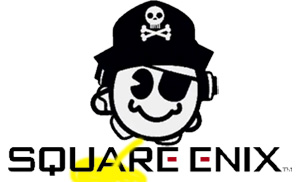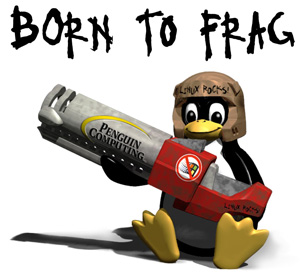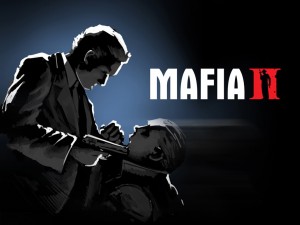 Recently MachineGames' new video game Wolfenstein: The New Order was
released. In case you are not familiar with the popular Wolfenstein series, it began way back in
1981 with Castle Wolfenstein and essentially
is a video game series revolving around Nazis and organisations which were active in Nazi Germany. You do not play as a Nazi, instead you
play against them. So effectively you are killing Nazis within the game.
Recently MachineGames' new video game Wolfenstein: The New Order was
released. In case you are not familiar with the popular Wolfenstein series, it began way back in
1981 with Castle Wolfenstein and essentially
is a video game series revolving around Nazis and organisations which were active in Nazi Germany. You do not play as a Nazi, instead you
play against them. So effectively you are killing Nazis within the game.
The more popular part of the series Wolfenstein 3D released in 1992 was "confiscated" in Germany in 1994 because of its use of the Swastika which in this context is considered a symbol of an unconstitutional organisation. The use of such symbols is regulated by German law in § 86a StGB and can lead to a fine and/or imprisonment of up to three years. When a video game is "confiscated" in Germany it effectively means the following (for a more thorough analysis see this (German)):
- You are not allowed to sell the video game within Germany
- You are allowed to buy the video game within Germany (however the seller is going against the law here)
- You are allowed to own the game
- You are allowed to import the video game from another country
So, assuming you already owned the game before the "confiscation", it is perfectly legal to keep it and play it. It is also perfectly legal to import the video game from another country which most people don't seem to know about. To me this doesn't really seem like a "confiscation" which is the German term used by law: "Beschlagnahmung", hence I put it in quotes. Instead I'd call it a ban, effectively censorship even.
Now you might be wondering: what about movies or television series involving the use of such symbols? Well, according to German law you may be allowed to make use of such symbols in certain cases like for example for "art" which is regulated in § 86 StGB. The next question is: those are considered art, but video games are not? Who says?
Answering this question would be an article on its own and effectively there is no decisive answer. It's a matter of court decisions in the past, a matter of a people that doesn't even want to touch certain topics due to a taboo and an industry that is rather scared and goes the "easy" way of censoring their video games for the German video game market instead of fighting against censorship.
Anyway, the discussion on why this ban exists is irrelevant to the point I actually want to make. As you have learned now, video games might get banned in Germany due to usage of symbols used by an unconstitutional organisation and regardless of that it is still perfectly legal to import such games from other countries. And here comes the catch.
Back in the days without digital rights management (DRM) it was as easy as importing a video game from another country, installing it and playing it. On the PC anyway, video game consoles already had a kind of a region lock through NTSC and PAL standards. But that's again another topic.
Let's go back to the recently released game Wolfenstein: The New Order which uses Steamworks as their DRM. To play the game you will have to activate it online with Valve Corporation's Steam software. And here's what Bethesda Softworks, the publisher of Wolfenstein: The New Order decided to do: they released a censored German version without the use of any unconstitutional organisation symbols and to top it off disallow the activation of the uncensored version from a German IP address.
Within Germany I'm only allowed to activate and play the censored version even though by law it is perfectly legal for me to import the uncensored version from another country. Since the Steam Subscriber Agreement disallows use of any proxy servers or virtual private network (VPN) to obfuscate my location, I have no legal and allowed means to play a perfectly legal and legit copy of an imported video game.
"You agree that you will not use IP proxying or other methods to disguise the place of your residence, whether to circumvent geographical restrictions on game content, to purchase at pricing not applicable to your geography, or for any other purpose. If you do this, we may terminate your access to your Account." - Steam Subscriber Agreement
Thank you for fucking over the honest customer. Obviously you don't want people's money, you made that abundantly clear.
Since Wolfenstein: The New Order is a single player only game it is happily shared by thousands of German peers... and you shouldn't even really be mad at them... Bethesda Softworks caused this themselves.
 11:00 AM, a nice Saturday morning, nothing planned for the day, got
plenty of time to surf the net and find out about missed stuff during the stressful week. Time to
relax.
11:00 AM, a nice Saturday morning, nothing planned for the day, got
plenty of time to surf the net and find out about missed stuff during the stressful week. Time to
relax.
Oh hey, a new game has been released. "Kingdoms of Amalur: The Reckoning".
Let's give it a try and download the demo on Origin:
"Unfortunately due to youth protection laws in Germany it isn't allowed to download this game during 6:00 AM and 11:00 PM." ("Leider darf dieses Spiel aufgrund des Jugendschutzgesetzes in Deutschland nicht zwischen 6:00 Uhr und 23:00 Uhr heruntergeladen werden.") - Origin Store
Seriously? I mean... seriously? I can't download it between those times? Am I allowed to play it at
least once I downloaded it outside those times? So if a kid downloads the game during the night it's
also able to play during the day then? What the fuck?
Hey, have you ever heard of SKIDROW? OK,
let's not go there, yet.
It's not Electronic Arts' fault right? It's a German law, so it's the German government's fault. After reviewing the German law for the protection of the youth I didn't find anything that would clearly and definitely explain this ban of download during daytimes, though.
The USK rated "Kingdoms of Amalur: The Reckoning" 18+, so nobody under the age of 18 is allowed to buy the game in Germany. Aka only adults are allowed to buy it. Or in this case, download the demo? That's not even buying, what are we talking about here then? Distribution in general? Actually it's a digital distribution, so let's see.
The way I see it we have the following laws that are relevant:
Section 12 JuSchG subsection (3) basically says that every medium (film or game) that is rated for adults only is not allowed to be made available or sold to anybody under the age of 18:
"[...] dürfen einem Kind oder einer jugendlichen Person nicht angeboten, überlassen oder sonst zugänglich gemacht werden [...]" - Section 12 JuSchG subsection (3)
Section 12 JuSchG subsection (4) says something about limitations of "vending machines" which make films or games available, like location and access control. It also states that adult content (18+) is not allowed to be made available through "vending machines" at all in public spaces accessible by kids and teenagers:
"[...] nur aufgestellt werden, wenn ausschließlich nach § 14 Abs. 2 Nr. 1 bis 4 gekennzeichnete Bildträger angeboten werden [...]" - Section 12 JuSchG subsection (4)
Looking at this and assuming that Origin is a "vending machine" they wouldn't be allowed to make such games available at all regardless of the time since the Internet is public. Assuming it isn't considered a "vending machine", they aren't allowed to make it available for anybody under the age of 18 which would therefore conclude that they'd need some kind of age verification before making such games available.
Are you honestly saying that everybody under the age of 18 is always asleep during 11:00 PM and 6:00 AM? This is an age verification? Seriously? But hey, others do it exactly the same way:
"This show is unsuitable for teenagers under the age of 12. This clip is therefore only available between 8:00 PM and 6:00 AM." ("Diese Sendung ist für Jugendliche unter 12 Jahren nicht geeignet. Der Clip ist deshalb nur von 20 bis 6 Uhr verfügbar.") - ARD Mediathek
Where is this coming from? Am I missing something? Not to mention that "teenagers" under the age
of 14 are not even considered "teenagers" by German law but are considered kids. What are
"teenagers" under the age of 12 then? They are kids.
And not to mention that GeoIP, the whole
concept and idea to find out from which country a certain website visitor is coming from is totally
unreliable. There have been reports of people getting those messages even though they don't live in
Germany or connect from within Germany. These laws do not apply to them.
Fuck GeoIP, fuck "national Internet" and get your head out of your asses. This is fucking ridiculous. Unless of course you don't want to make money?
Coming back to my previous question: have you ever heard of SKIDROW?
Update: Kreuvf found out where those ridiculous time periods are coming from. They are actually defined in a treaty, the State Treaty on Youth Protection in the Media ("Jugendmedienschutz-Staatsvertrag") which is also regulating digital distribution like the Internet. The JuschG apparently is only regulating physical media.
 What's the first thing you do when you want to buy a product? Read
reviews? Assuming you already know that the product is awesome and you really want it, what's the next
thing you do? Comparing prices of course, since you're not going to march to the next open store and
simply buy it where you might have been able to save a buck or two instead.
What's the first thing you do when you want to buy a product? Read
reviews? Assuming you already know that the product is awesome and you really want it, what's the next
thing you do? Comparing prices of course, since you're not going to march to the next open store and
simply buy it where you might have been able to save a buck or two instead.
Now since we've got the Internet and everything got pretty global due to all the connectivity we're having, there's also the possibility to buy products in other countries. Since other countries might have other currencies, laws and tax regulations, there's a good possibility you might save quite some money when importing your product from another country.
That idea goes even further when we're talking about video games, since those nowadays in pretty much every case also come as a digital download. So you don't even need to buy a physical product anymore. No more shipping, no more customs (whereas this is another story from a legal point of view).
Now there are some publishers who think it's a great idea to have their games region locked. Meaning you can only play/activate them in certain countries, mostly limited to the one you actually bought the product in. That makes you unable to import the game for less money. That's an idea that actually came from video gaming consoles. Back in the days this was due to different TV systems being used in different countries, simplified: PAL and NTSC. So it made some sort of sense back then.
Having this kind of region lock on a PC doesn't make any sense at all however. Yet, some publishers do exactly that. Latest example: Deus Ex: Human Revolution by Square Enix:
"The PC version of Deus Ex: Human Revolution is region-locked. Please be sure to purchase a copy from your own region, otherwise you might not be able to register the game." - Square Enix FAQ
I love their suggestion what to do when you can't activate the game and play even more:
"If you should not be able to register your copy due to a region conflict, please return the game to your retailer. Square Enix cannot offer assistance in replacing incompatible registration codes." - Square Enix FAQ
Epic.
What's that about piracy you're saying? Well, why give people a reason to buy your game when you
can give them one not to?
Instead of all that stuff about region locking they could've also said:
"Please don't bother about buying our game and download a cracked version for free instead. That way you definitely won't be bothered with any online activation or region lock."
Yes. Exactly that.
 Those were the days my friend, we thought they'd never end. The
days where you opened your multiplayer game, opened the server browser, ordered the servers by their
latency, added some more filters like preferred map, players, and so on to your liking and finally selected
the server you wanted to join. Back then people still knew what latency or ping meant. Back then game
servers were running on dedicated machines which had more bandwidth and resources available than usual
personal computers. When a server started lagging and your ping got too high, you simply looked for a server
you had a better connection to.
Those were the days my friend, we thought they'd never end. The
days where you opened your multiplayer game, opened the server browser, ordered the servers by their
latency, added some more filters like preferred map, players, and so on to your liking and finally selected
the server you wanted to join. Back then people still knew what latency or ping meant. Back then game
servers were running on dedicated machines which had more bandwidth and resources available than usual
personal computers. When a server started lagging and your ping got too high, you simply looked for a server
you had a better connection to.
Those were the days on the good old personal computer. Today unfortunately video gaming consoles took a major place in video gaming and with them came the average dumbed down casual gamers who simply want to play with the push of a button.
Ping? You mean those fancy colored bars which go green, yellow and red according to my connection? Oh yes, yes. I know those from my phone, too. It's like the reception to the server, right?
Dedicated servers you say? I don't know, I simply press "join match" or "start match" and that's it. But I prefer games where that function is combined by one button, sometimes called "instant play" or also "inb4 ragequit".
But even when games actually do get dedicated servers, often they're only released for Windows. Now you might be saying "Linux is not meant for gaming anyhow, right?". Well, even though most major video games don't run on Linux as a client, the majority of people are running Linux dedicated servers and not Windows dedicated servers for games. And no, I'm not going to back that with some fancy statistics now but simply state my own experience there. Just think about it for a second, it makes perfect sense. What kind of server administrator needs some freaking graphical user interface (GUI) on their server? And Windows always comes with a GUI, that's why it's called Windows after all (duh). It's a waste of resources that could be used otherwise. Not to mention the overall system stability, licensing costs (none vs. too much) and open source vs. closed source.
So thanks to video gaming consoles we either get no dedicated gaming servers at all or crippled ones. Let's see what games are made for the average dumbed down casual gamer:
Call of Duty: Modern Warfare 2 - No dedicated servers available at all
Call of Duty: Black Ops - Dedicated servers operation limited to GameServers.com
"If players want to run a dedicated Ranked or Unranked server on the PC, they will have to rent one through GameServers" - Josh Olin
Battlefield Bad Company 2 - Dedicated servers operation limited to "trusted partners"
"DICE will have trusted partners with datacenters worldwide that you'll be able to rent a dedicated server from [...]" - Battlefield Blog post
And now some games where developers and publishers don't care about Linux dedicated servers:
- Brink (work in progress, so far not released)
- Crysis 2
- Dino D-Day
- Duke Nukem Forever
- Monday Night Combat
- Plain Sight
And many more... It's saddening to see how the video gaming world is dumbing down and how publishers and developers don't think it's very important to have Linux dedicated server support or dedicated server support at all. Look at those games and their number of active players. Look at those games and ask the number of active players how they're fed up by simple matchmaking functions that don't work very well. They'll probably tell you that they often ragequit because they ended up on a server somewhere far, far away with a latency beyond anything that could still be considered enjoyable.
And if there is dedicated server support but it's limited to "trusted partners" only that means that whether you own a dedicated server yourself somewhere doesn't matter. Because you can only directly rent a game server from those "trusted partners". Those of course come with a higher price since you probably would've been able to host several gaming servers on your dedicated server but instead you have to rent them for more cash than you pay for your dedicated server.
Why is that happening? Why do companies treat their customers like they're complete idiots? Why do we have to dumb everything down? We don't need some fancy colored bars where we had our latency shown as a number before. Going from a number to a colored bar is a reduction in information which we used to have before. How come private individuals can't host dedicated gaming servers anymore? Why would that even be limited to certain "trusted partners"? Is some cash flowing there?
The first thing I do when I want to buy a new multiplayer game is to check whether Linux dedicated servers are supported. That's because I always like to host my own server. I know the setup of that server, I know when it's reachable and I can always enjoy playing on it when I want. So to me, when a multiplayer game does not support Linux dedicated servers can be a reason to not buy the game. And that means the company will have a potential customer less which equals to less money for them. Now, I'm just a single individual but I'm pretty convinced there are more people thinking just like me. (Just search for "Linux" on that page)
Think about it.
 This is something the whole entertainment industry should take a look
at and think about. I could provide lots of examples now why the honest customer is always the fool and why
'pirates', getting stuff for free benefit, but I'm gonna stick to a more recent game, one where
I experienced myself again why being honest makes you regret every time.
This is something the whole entertainment industry should take a look
at and think about. I could provide lots of examples now why the honest customer is always the fool and why
'pirates', getting stuff for free benefit, but I'm gonna stick to a more recent game, one where
I experienced myself again why being honest makes you regret every time.
I'm going to talk about Mafia 2, the collector's edition of said game to be exact.
The first thing to mention about Mafia 2 is the release date: it was released in North America on 24th August 2010. European countries got it three days later, on 27th August 2010.
First question arises: why? Oh I see, you want to give North American crackers the game so Europeans
don't need to buy it but instead can download a cracked version straight from North America. But no,
nobody would do that, since we're all honest customers and want to pay for entertainment we enjoy.
Actually though, exactly that happened.
Now, I myself wanted to get the PC collector's edition of
Mafia 2. I'm living in Germany and therefore usually import my games from the United Kingdom to avoid
the pain in the ass called censorship, which publishers tend to do a lot here. In this case the German
version of Mafia 2 isn't censored, so it doesn't really matter where I get the game from. However,
turns out that there is not going to be a Mafia 2 PC collector's edition in the United Kingdom, only for
Xbox 360 and PS3.
Second question arises: why? (déjà vu)
But whatever... What about Germany? They're going to have a collector's edition for the PC, but
only limited to one consumer electronics market: Saturn, since they made a special deal with Take 2, the
publisher of Mafia 2. This limitation only affects the PC version, Xbox 360 and PS3 collector's editions
will be sold in every other shop.
Third question arises: why? (...)
So, the honest customer goes to his local Saturn market on 27th August 2010 to pick up a Mafia 2 PC
collector's edition, and guess what? It's sold out!
Fourth question arises: why the fuck should
I even bother buying games?
There you go. I asked four questions and can't answer a single one of them.
